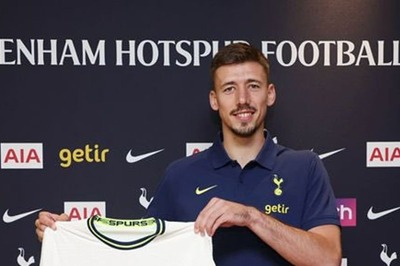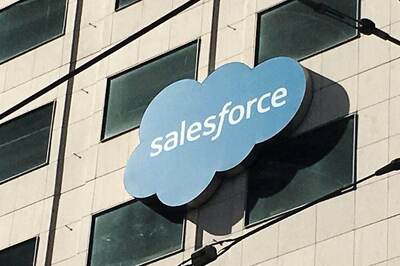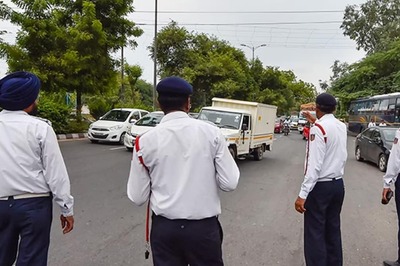
views
Amman: Syrian security forces killed six demonstrators on Friday during nationwide protests for an end to President Bashar al-Assad's authoritarian rule, a rights campaigner and witnesses said.
Activists and witnesses said demonstrations broke out after the main Friday prayers in cities across the country of 20 million people, from Banias on the Mediterranean coast to Qamishly in the Kurdish east.
Assad's security forces and troops, which stormed the city of Deraa last week, have prevented demonstrators establishing a permanent platform such as Egypt's Tahrir Square by blocking access to the capital Damascus, but every week protesters have used Friday prayers to launch fresh marches.
"The people want the overthrow of the regime," shouted 2,000 demonstrators in the Damascus suburb of Saqba, demanding the release of hundreds of relatives arrested by security forces in the last few days, a witness said.
Footage released on the Internet and aired on Al Jazeera television showed protesters in several towns and cities echoing the same calls for freedom and change of leadership.
Some demonstrators paraded on motorcycles, waving the Syrian flag and shouting Allahu Akbar (God is Greatest).
Tanks deployed in the Damascus district of Barzeh and in the central city of Homs, where five demonstrators were killed when security forces opened fire on a large protest, a rights campaigner in the city said.
"Five bodies were picked up in Bab al-Sibaa area. There are scores of injured protesters. Thousands are still marching peacefully in other parts of Homs," said the campaigner.
In Hama, where Assad's father brutally suppressed an armed Islamist uprising in 1982, one person was shot dead during a large protest in the center of the city, a resident said.
There were also protests in the Damascus district of Midan, the suburb of Daraya and towns of Zabadani and Tel Kelekh near the Lebanese border. Activist Wissam Tarif said live ammunition was fired in at least four demonstrations.
In Banias, protest leader Anas al-Shughri told Al Jazeera television demonstrators would continue "until we get our freedom ... We want to get rid of injustice."
International criticism has mounted against President Bashar al-Assad, who has gone on the offensive to maintain his family's four-decade grip on power. He seems adamant not to concede to popular demands or to let outside pressure deflect him from crushing Syrian demonstrators demanding freedom.
But despite a harsh security crackdown, protesters appeared determined to carry on with their protest movement demanding an end to years of repression, arrests without trial and corruption by the ruling elite.
Human rights campaigners say army, security forces and gunmen loyal to Assad have killed at least 560 civilians during demonstrations that broke out in Deraa on March 18. Thousands have been arrested and beaten, including the elderly, women and children, they said.
Officials give a lower death toll and say half the fatalities have been soldiers and police, blaming "armed terrorist groups" for the violence. They say demonstrators are few in number and do not represent the majority of Syrians.
Western powers, which sought for years to engage Damascus and loosen its anti-Israel alliances with Iran and the militant groups Hezbollah and Hamas, have condemned the bloodshed.
The United States, which called the army crackdown in Deraa "barbaric," imposed further targeted sanctions last week against Syrian officials and Europe's main powers have been pushing for similar European Union measures.
Last week, Assad ordered the army into Deraa, cradle of the uprising that began with demands for greater freedom and an end to corruption and is now pressing for his removal.
An ultra-loyalist division led by his brother Maher shelled and machine-gunned Deraa's old quarter on Saturday, residents said. Syrian authorities said on Thursday the army had begun to leave Deraa, but residents described a city still under siege.
"With our soul and blood, we will sacrifice for you, Deraa," hundreds of protesters chanted in Jassem, a town near Deraa.
Aid workers from the Red Cross and Red Crescent delivered their first emergency relief supplies to Deraa on Thursday, bringing drinking water, food and first aid materials. They had no immediate information on casualties in the city.
Human Rights Watch cited figures from Syrian rights groups saying 350 people had been killed there. It urged authorities on Friday to "lift the siege" on the city and to halt what it called a nationwide campaign of arbitrary arrests.
"Syria's authorities think that they can beat and kill their way out of the crisis," said HRW Middle East director Sarah Leah Whitson. "But with every illegal arrest, every killing of a protester, they are precipitating a larger crisis."
Diplomats said the European Union could reach a preliminary agreement on imposing sanctions on Syria's ruling hierarchy on Friday, but had yet to decide whether Assad should be included.
Assad has received scoldings from U.N. Secretary-General Ban Ki-moon and Turkish Prime Minister Tayyip Erdogan, who had forged strong trade and political ties with its neighbor.
The Turkish leader has urged Assad to reform before it is too late and warned him against "another Hama" -- referring to the Syrian city where Assad's father crushed an armed Islamist revolt in 1982, killing many thousands of civilians.
Assad has said the protesters were part of a foreign conspiracy to cause sectarian strife.
His father Hafez al-Assad used similar language when he crushed Islamist and secular challenges to his rule in the 1980s.
Hafez lost two wars to Israel, as defense minister in 1967 and as president in 1973. He maintained Syria's position as a central player in Middle East geopolitics by building ties with Shi'ite Iran and backing Palestinian guerrilla forces.
The younger Assad, who belongs to the minority Alawite sect, has reinforced the anti-Israeli alliance with Tehran, despite disquiet on the part of Syria's majority Sunni population.




















Comments
0 comment